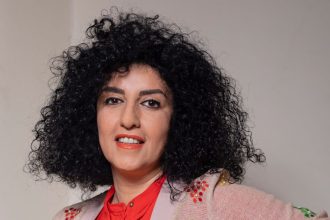Singapore’s next general election is set for May 3, 2025, and it will be a significant moment for Prime Minister Lawrence Wong. As the leader of the fourth-generation People’s Action Party (PAP) team, Wong will face his first electoral challenge since taking over from Lee Hsien Loong.
This vote, the 14th since Singapore’s independence in 1965, occurs amidst economic uncertainty and social change. Wong seeks to secure a strong mandate to address these challenges directly.
Election Timeline
The election kicked off when President Tharman Shanmugaratnam dissolved parliament on Wong’s advice. Here’s the schedule:
- Nomination Day: April 23, 2025
- Campaign Period: Nine days
- Cooling-Off Day: May 2, 2025
- Polling Day: May 3, 2025
With mandatory voting for 2.75 million eligible Singaporeans, turnout for this crucial event will be high.
Singapore will head to the polls on May 3, after President Tharman Shanmugaratnam dissolved the city-state’s parliament on Tuesday.
➡️ This will be Singapore’s 14th general election since independence.
Read more: https://t.co/NqbbCrarZi pic.twitter.com/FGuobymy5S
— CNBC International (@CNBCi) April 15, 2025The PAP, which has ruled since 1959, is favoured to win again. In 2020, it claimed 83 of 93 seats, though the Workers’ Party won 10, a record for the opposition. This time, 97 seats are in play. A March 2025 YouGov poll found 63% of decided voters favouring the PAP and 15% backing the Workers’ Party, but 56% remain undecided, hinting at potential surprises.
Wong’s government confronts multiple issues:
- Economic Strains: Inflation and housing costs rise while U.S. tariffs threaten exports. Wong called these tariffs a “profound turning point,” the 2025 GDP forecast dropped to 0–2%.
- Social Concerns: An ageing population needs better healthcare, and debates over inequality and immigration are heating up.
Wong rolled out a budget with tax rebates and cash handouts to ease voter concerns.
Opposition parties face tough odds. Group Representation Constituencies (GRCs) demand team candidacies, straining smaller parties. Candidates also risk losing a S$13,500 (US$9,700) deposit if they don’t win at least one-eighth of votes. Still, the Workers’ Party remains a strong contender.
Singapore will hold its general elections on May 3 https://t.co/SSEVT2DljX
— Bloomberg (@business) April 15, 2025Recent PAP scandals—a corruption probe involving a senior minister and two lawmakers resigning over an affair have dented public trust. Wong’s response to these incidents will be closely watched.
The campaign will spotlight affordability, inequality, and long-term policies. With only Tokyo and Saitama seeing population growth last year, urban-rural divides could also emerge. The election will test Wong’s leadership and the PAP’s dominance.






